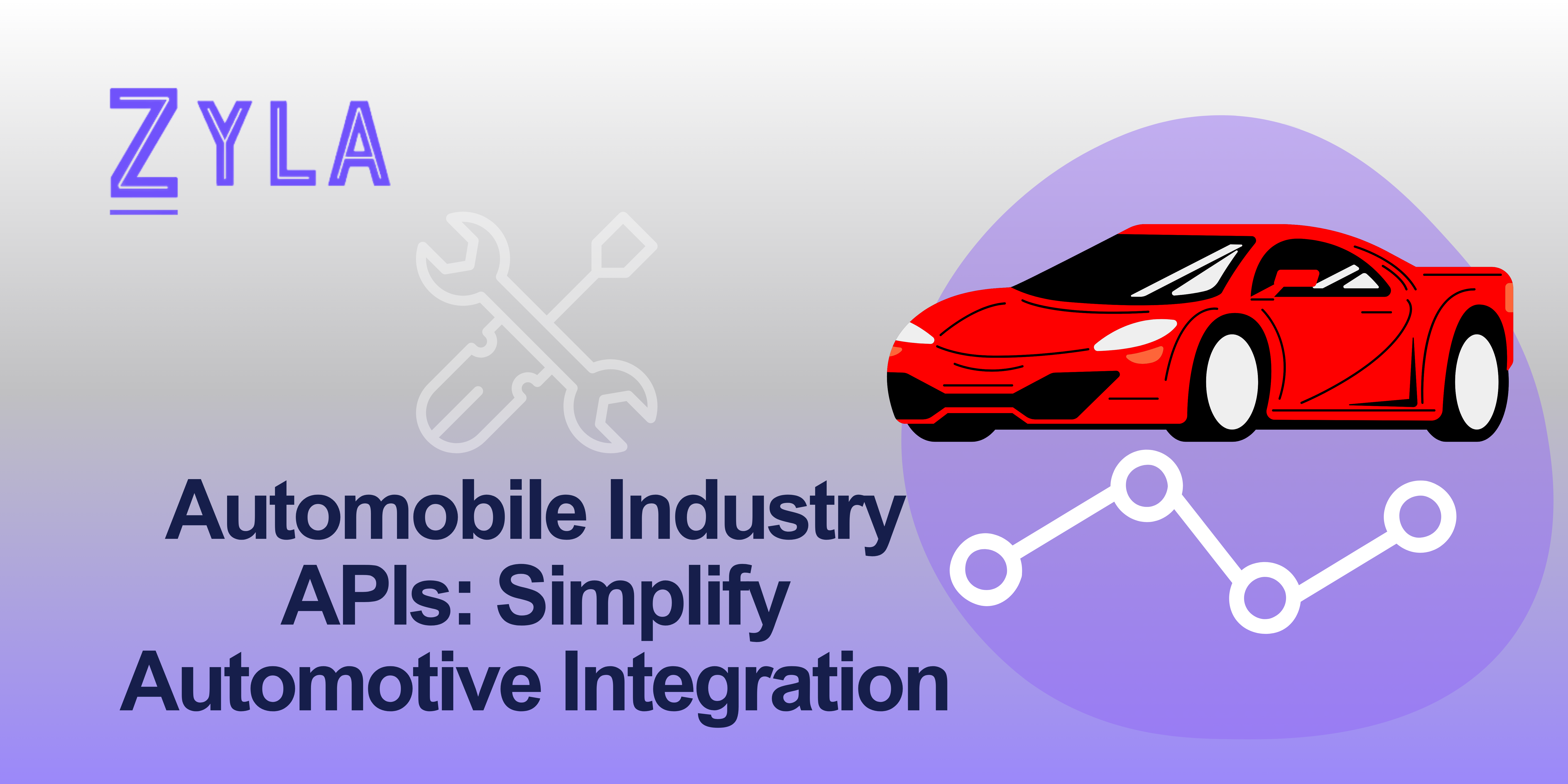Automobile Industry APIs: Simplify Automotive Integration

In today's rapidly evolving automotive landscape, the seamless exchange of data and integration of software applications have become paramount for businesses and developers alike. At the heart of this digital transformation lies the power of Application Programming Interfaces (APIs). In this article, we delve into the world of Automobile Industry APIs and their profound impact on simplifying automotive data integration. We explore how these APIs streamline communication between systems, enhance efficiency in app development, and ultimately pave the way for innovation. Additionally, we shine a spotlight on Zyla API Hub, a leading marketplace offering a plethora of cutting-edge Automobile Industry APIs, and delve into its features and capabilities.
Introduction to Automobile Industry APIs
When we talk about APIs in the context of the automobile industry, we're referring to the set of protocols, tools, and definitions that allow different software applications to communicate with each other. In simpler terms, APIs act as intermediaries, enabling various systems within the automotive ecosystem to exchange data and execute commands seamlessly.
The importance of APIs in automotive integration cannot be overstated. In an industry characterized by complex supply chains, diverse technologies, and rapidly evolving consumer demands, APIs serve as the linchpin that holds everything together. Whether it's transmitting vehicle diagnostics, facilitating telematics services, or enabling remote vehicle control, APIs play a central role in enabling innovation and driving operational efficiency.
Simplifying Automotive Data Integration with APIs
One of the primary functions of Automobile Industry APIs is to streamline communication between disparate systems. Traditionally, integrating software applications within the automotive sector was a laborious and time-consuming process, requiring custom-built solutions and extensive manual intervention. However, with the advent of APIs, this task has been simplified significantly.
By providing standardized interfaces and predefined methods for accessing and manipulating data, APIs eliminate the need for developers to reinvent the wheel with each integration project. Instead, they can leverage pre-existing APIs to establish seamless connections between different software components, thereby accelerating the development cycle and reducing time-to-market.
Furthermore, APIs enhance efficiency in app development by abstracting complex functionalities into simple, reusable building blocks. This modular approach not only fosters code reusability and maintainability but also enables developers to focus on adding value to their applications rather than getting bogged down by low-level implementation details.
Exploring Zyla API Hub: Features and Capabilities Of An Outstanding Marketplace
Among the myriad of API marketplaces available today, Zyla API Hub stands out as a premier destination for Automobile Industry APIs. With its extensive catalog of APIs catering to various facets of the automotive ecosystem, Zyla API Hub offers a one-stop-shop for developers looking to integrate cutting-edge functionalities into their applications.
At its core, Zyla API Hub is designed to simplify the API discovery and integration process. Through intuitive search and filtering capabilities, developers can quickly find the APIs that best suit their requirements, whether they're looking for vehicle telematics data, predictive maintenance algorithms, or connected car services.
Benefits of using Zyla API Hub for Automobile Industry APIs
One of the key benefits of Zyla API Hub is its comprehensive selection of Automobile Industry APIs. With over a thousand APIs covering a wide range of use cases, developers have access to a wealth of resources to enhance their applications and differentiate themselves in the market.
Moreover, Zyla API Hub provides developers with a user-friendly interface and robust documentation, making it easy to understand and integrate APIs into their projects. From detailed API specifications to code samples and tutorials, Zyla API Hub equips developers with the tools they need to hit the ground running and build innovative automotive solutions. Additionally, Zyla API Hub fosters a vibrant community of developers and experts, facilitating collaboration and knowledge sharing. Whether it's seeking assistance from fellow developers, sharing best practices, or providing feedback on API usage, Zyla API Hub offers a supportive ecosystem where developers can thrive and succeed.
Conclusion
In conclusion, Automobile Industry APIs, particularly those offered by Zyla API Hub, are playing a transformative role in shaping the future of automotive development. By simplifying data integration, streamlining communication, and fostering collaboration, these APIs are empowering businesses and developers to unlock new opportunities and drive innovation in the automotive sector. As we look ahead, the continued evolution of APIs promises to accelerate the pace of innovation and propel the automotive industry into a new era of connectivity and efficiency.







